Hi Hello & Welcome to this week’s look at the movies and movie people that matter to me.
This week I’m taking a potted look at a cultural icon as well as a movie legend, an Actor seemingly still as relevant & revered today as he was back in the 60’s & 70’s - the one and only STEVE MCQUEEN.
As ever you’ll have your favourite movies of his - I know I do - but by way of contrast the two movies of his I’m going to focus on this week are BULLITT (1968) and THE SAND PEBBLES (1966).
But first, the man, the dude.
Terrence Stephen McQueen was born to a single mother in Indiana on March 24th 1930. McQUEEN’s father - William McQueen - was a stunt pilot for a barnstorming flying circus but left Julianne Crawford six months after meeting her. Seemingly unable to cope she handed over her son to his maternal grandparents in Missouri, but as the Great Depression took grip they all upped and moved to McQUEEN’s Auntie’s farm in nearby Slater. According to McQUEEN life on the Farm held pretty good memories, but that all got broken up when his by now married Mother returned and reclaimed 8yr old Steve, taking him back to Indianapolis.
Dyslexic and partially deaf due to a childhood ear infection McQUEEN didn’t adjust well to school or his new life and his stepfather started beating him to such an extent that aged nine he ran away from home to go live on the streets. Later he recalled "When a kid doesn't have any love when he's small, he begins to wonder if he's good enough. My mother didn't love me, and I didn't have a father. I thought, 'Well, I mustn’t be very good.'" Street gangs, petty crime, running with the wrong crowd, rebelling the hell out of it all followed. He became trouble, got into trouble and was sent back to his grandparents farm in Slater.
When McQUEEN was 12 however his mother wrote asking for her son be returned to her again, this time in Los Angeles. His mother now married for the second time McQUEEN and his latest stepfather "locked horns immediately" and according to McQUEEN his new dad was "a prime son of a bitch". Gang life and petty criminality hoved into view once more and eventually Steve sent to the Boys Republic in Chino Hills - California, a private all-boys school for troubled adolescents. It was to be the beginning of the making of him.
Byron wrote “Adversity is the first path to truth” and so McQUEEN’s time at the Boys Republic proved. He was unpopular at first, but as time went on he found his rhythm and place, so much so he was elected to the Boys Council (a group who set the rules and regulations governing the boys' lives). After a personally productive and positive time at Chino Hills McQUEEN returned to live with his Mother in New York aged 16, but absconded once again ending up doing weird shit like working in a brothel in the Dominican Republic and lumberjacking in Canada, right through to selling pens at a travelling carnival. Eventually he was arrested for vagrancy in the Deep South and ended up serving 30-days on a chain gang. Whatever structure he’d discovered at the Boys Republic, Steve McQueen was a totally lost soul once again.
As it was for many of his post-WW2 generation, the military - freshly victorious after the Second World War - brightly beckoned and proudly promised. I’d like to think that our boy knew - just knew - that what he needed was the structure and discipline of the Boys Republic back in his life. Only this time and about to turn eighteen, it was to be a Man’s Republic he’d join. McQUEEN enlisted in the U.S. Marine Corps and was eventually promoted to Private First Class with an armoured unit. Although he instantly took to the strict discipline of military life McQUEEN being McQUEEN, he eventually rebelled, got himself into trouble and ended up getting 41 days in the brig. But, he got his shit together enough again that he ended up assigned to the honor guard responsible for guarding the presidential yacht of then President Harry Truman. He eventually got himself an honourable discharge in 1950. As he put it "The Marines made a man out of me. I learned how to get along with others, and I had a platform to jump off of.”
He’d lived a good few lives then by the age of just 20, taken a lot of shit, dished out a fair bit of shit. But something was to come along and give him the help and support he needed as a working class, ex-military boy - The G.I. Bill. I touched on this important government aid package for vets a few weeks ago when writing about Gene Hackman, but now it was McQUEEN who was to benefit from this important bill (along with other future stars such as Paul Newman, Clint Eastwood, Lee Marvin, George C. Scott, and Ernest Borgnine). With money from the bill he started studying in New York under renowned acting teachers such as Sanford Meisner, Uta Hagen and Stella Adler.
In late ‘55 aged 25 our boy headed for Los Angeles, and it wasn’t long before he started to get work in classic 50’s ‘B’ movies. In ‘56 he got himself a small part in a triple Oscar nom’d and double Oscar winner - SOMEBODY UP THERE LIKES ME - alongside Paul Newman. Two years later he bagged the lead in the classic ‘B’ movie teen sci-fi-horror THE BLOB (1958). But his big break came the same year as THE BLOB when he bagged the lead part of bounty hunter ‘Josh Randall’ in the CBS TV series WANTED DEAD OR ALIVE. Three seasons of this lead to THE MAGNIFICENT SEVEN (1960), the top-billed lead in John Sturges’ classic THE GREAT ESCAPE (1963), LOVE WITH THE PROPER STRANGER (1963), THE CINCINATTI KID (1965) and the first of this week’s two films.
THE SAND PEBBLES (1966) is very far from McQUEEN’s best film and arguably hasn’t stood the test of time hugely well either (although it’s still worth your time). But what makes it worthy of flagging is McQUEEN’s performance in it - which I think is excellent - and the fact that he garnered his only Oscar nomination for it.
McQUEEN plays US Navy Machinist’s Mate Jake Holman, a man with a passion for machinery who’s serving aboard the Yangtze River gunboat USS San Pablo in 1920’s China. To insanely précis, McQUEEN’s character is an archetypal loner who eventually turns out to be a committed brother and hero to his fellow soldiers. Another reason for not getting into the plot is that it’s quite a complicated story, however it’s all the better for this asking you as it does to engage your brain as well as your emotions.
McQUEEN is outstanding in it, delivering a classic McQUEEN performance in the sense of high on visual acting and charisma, low on (the need for) huge tracts of dialogue to communicate the character to the audience. McQUEEN was better than many but dialogue wasn't anywhere near his greatest strength. He knew this though. I think he’d sussed this real early on. But by now so had directors, so had Hollywood.
Fresh from the massive success of The Sound Of Music (1965) having Robert Wise as the film’s director no doubt helped curry favour with Academy members and voters, but I think McQUEEN damn well earned his Best Actor nomination, and although he didn't win there was precisely zero shame in losing to one of the greatest Actors of his generation or any other generation - Paul Scofield. The nomination itself spoke volumes. The guy had the acting chops to go with the looks and the star quality, the charisma.
It may be an obvious choice, but if you’re looking at McQUEEN how the buggery fuck can you ignore BULLIT (1968). You can’t of course.
McQUEEN’s production company (Solar) co-produced BULLITT and so he was heavily involved from way before day one. One of his best pre-prod decisions was to hire British director Peter Yates having seeing ROBBERY (1967) and the brilliant location-shot car chase at the beginning of the film. This was what McQUEEN was after for BULLITT, and as the world knows that’s what we got and then some in this stone cold classic neo-noir action-thriller.
McQUEEN plays a San Francisco cop assigned as bodyguard to a syndicate witness. The witness gets shotgunned and McQueen becomes a political football. Robert Vaughn is the politician who puts the heat on, and it's up to McQUEEN to hide the victim's body until he can untangle the case.
McQUEEN based the character of Frank Bullitt on San Francisco cop Dave Toschi who he worked with prior to filming, even copying Toschi’s unique "fast-draw" shoulder holster. (Toschi later became famous as the lead San Francisco investigator of the Zodiac murders, which began shortly after the release of BULLITT)
That’s as much plot as I’m gonna give ya as you either already know the film or if you don’t, why spoil it!
The car chase is iconic because it’s brilliant, McQUEEN’s in full 100% committed form, for only his second film after ROBBERY Yates’ work is classy and precise as fuck, the supporting cast of Vaughn, Jacqueline Bisset, Don Gordon and Simon Oakland are all on the money and the work of stunt coordinator Carey Loftin, Bud Ekins and Loren Janes on the car chase sequence set new standards forever going forward.
I’ve heavily tweeted clips on Twitter of this of course but I’d seriously recommend you take a gander at this short ‘making of’ mini-documentary: ‘BULLITT’ - Steve McQueen’s Commitment To Reality. It’s totally fabulous.
BULLITT won an Academy Award for Best Editing (Frank P. Keller), was nom’d for Best Sound, and bagged five BAFTA nom’s. But in essence this wasn’t one for the ‘critics’ or the self-proclaimed cinematic intelligentsia. No, this one was for the audience, for those of us who sometimes just want to be fucking entertained.
And by god BULLITT does that every single time you watch it. THAT’S why this is such a great movie, THAT’S why it’s the definition of a stone cold classic, THAT’S why BULLITT will be doing in a hundred years time what it’s been doing for 56 years already - having us love the hell out of the Movies.
Well, that’s it for this week then folks. I hope you go revisit or visit either or both of these movies again soon, see you on Twitter of course, look after yourselves and others, and Good Night And Good Luck.
Michael
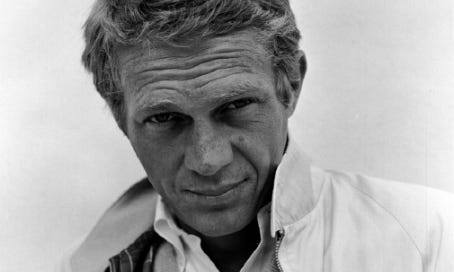




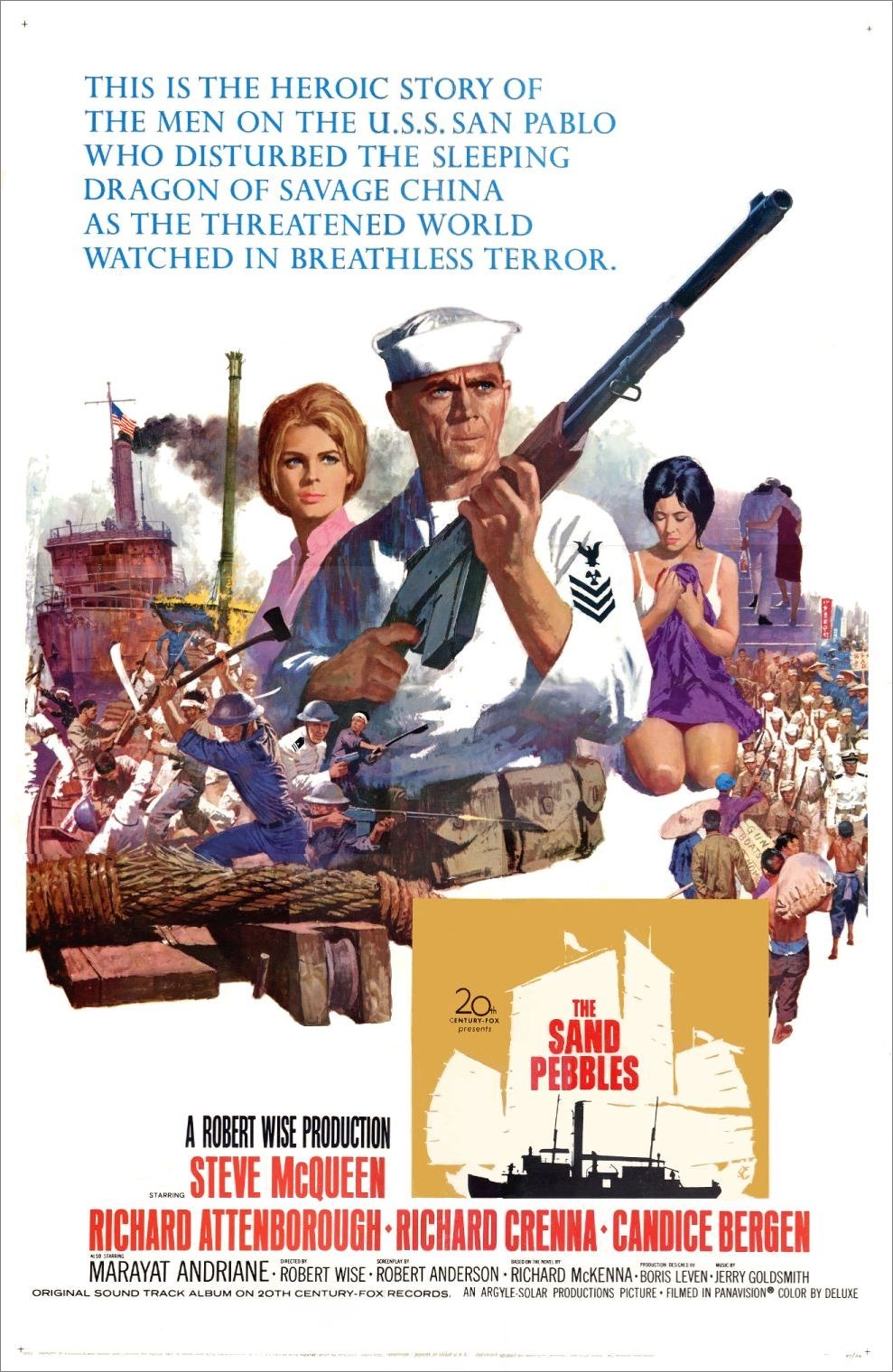
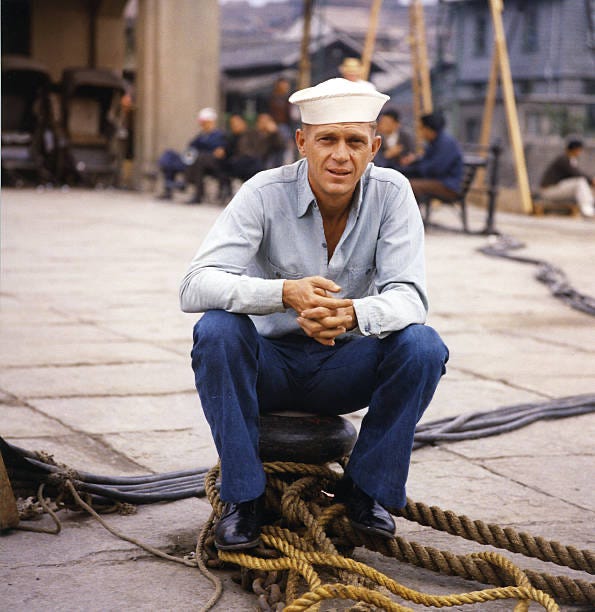
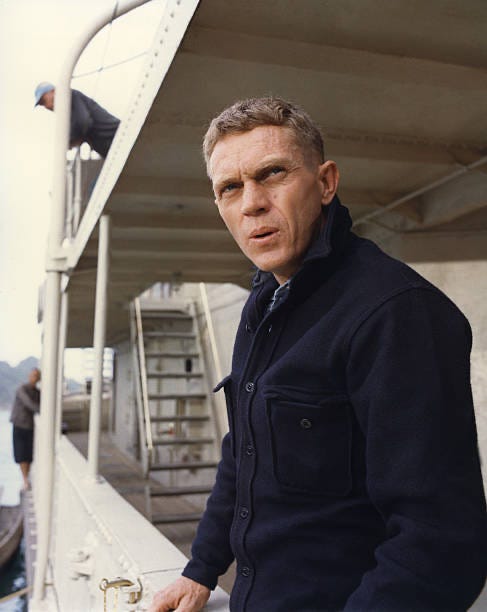
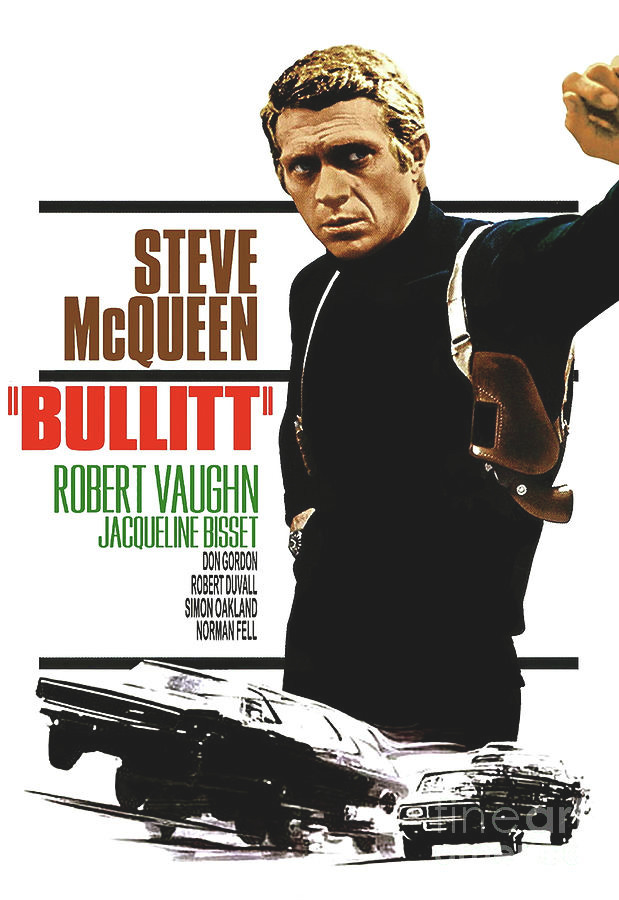
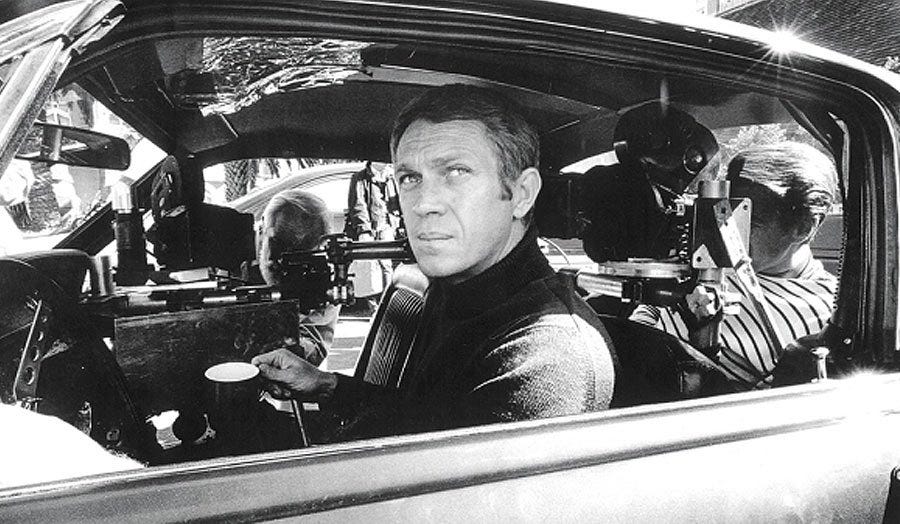
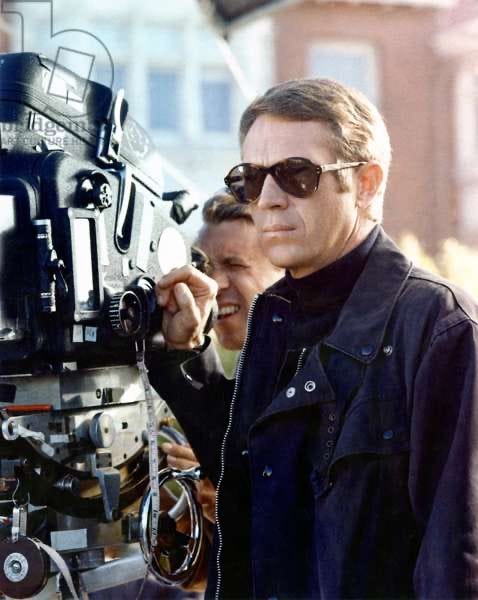
Quick edit: McQUEEN ensiled in the U.S. Marine Corps -> "enlisted"